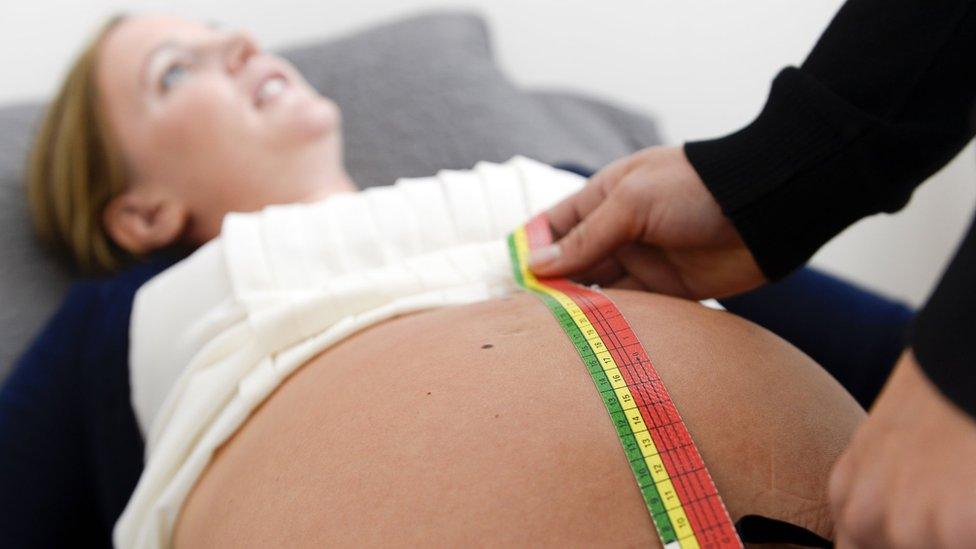Sweden reacts to anger at 'risky births' and maternity care shortages
- Published

New money was agreed for maternity services amid a growing chorus of criticism
Sweden is hoping a new cash injection will put an end to disturbing reports about maternity care in a country seen as among the safest to give birth.
The move comes amid mounting concern at reports of women being turned away from overcrowded wards or being forced to drive long distances to give birth.
Several Swedish counties have complained of shortages.
An extra 500m krona (£45m; $57m) will be formally announced in April's spring budget, the government says.
One midwife, Stina Naslund, told the BBC about the traumatic birth experiences of pregnant women after a ward was shut down in early February in the remote town of Solleftea, some 500km (300 miles) north of the capital Stockholm.
Giving birth in a fire engine
The closure meant that pregnant women faced a drive of 100km to 220km to reach the next nearest maternity ward, she said.
Since then one woman had been forced to give birth in her car, another in a fire engine manned by volunteers, and another in a taxi.
And those who attempted the drive to the nearest alternative ward had to negotiate one of Sweden's most dangerous roads - in an uninhabited and dark area, with no mobile connection.
The ward had served 40,000 people, she said. Its closure aroused such local anger that it has been occupied by protesters ever since.

Last Saturday, 1,000 campaigners created a candlelit heart to protest against the closure of the maternity ward in Solleftea
"Thousands of people from all political [affiliations] are supporting us," she said, "Children, 80- and 85-year-old women, old men, football teams, different companies."
The new money was agreed in a deal between the Social Democrat-Green ruling coalition and the Left party, on whose support the coalition relies in parliament.
"I think it's very good news. The person going to give birth has to be able to trust that they are going to get the care they need," Left Party leader Jonas Sjostedt told Swedish media.
"It's half a billion krona and it will mainly go to staff, so that good working conditions can be provided, so that you can retain staff and make sure you have proper staffing levels in summer. In some counties you can avoid bad cuts and keep the delivery rooms you need," he said.
However, campaigners say their work is not yet done, as Sweden's decentralised system dictates that local counties will make the final decision about how the money is spent.
Ms Naslund said the new money was enough to reopen the ward and campaigners would take their case to Stockholm.
"We won't believe it until we see it," she said.